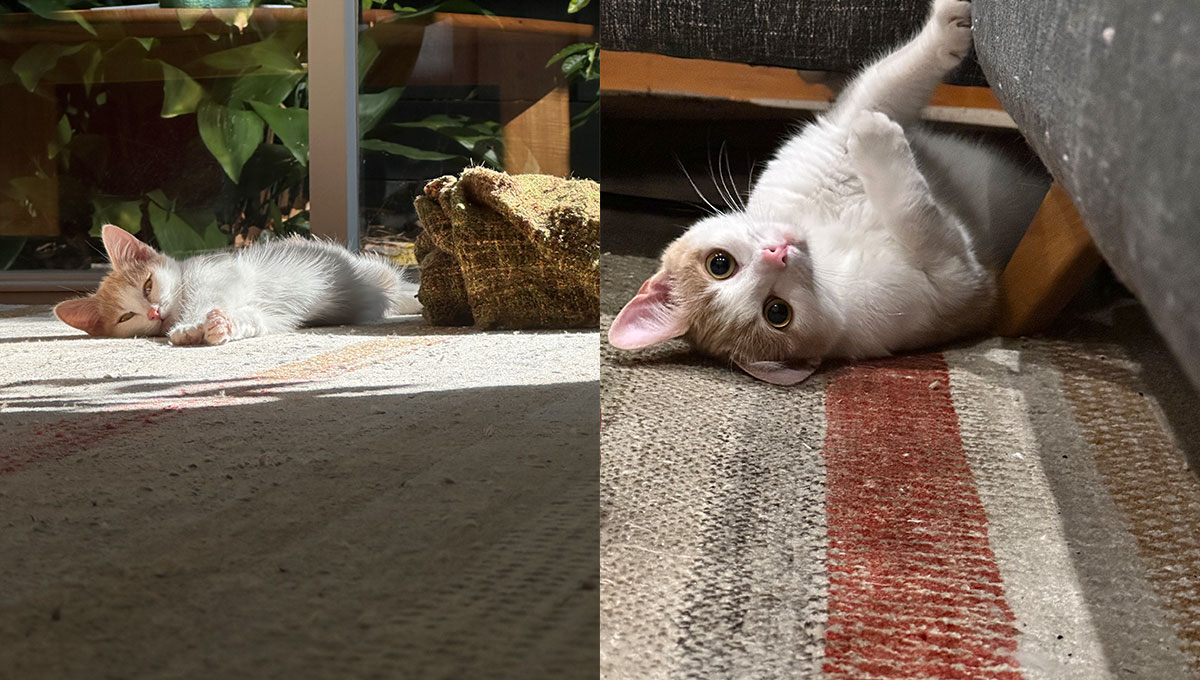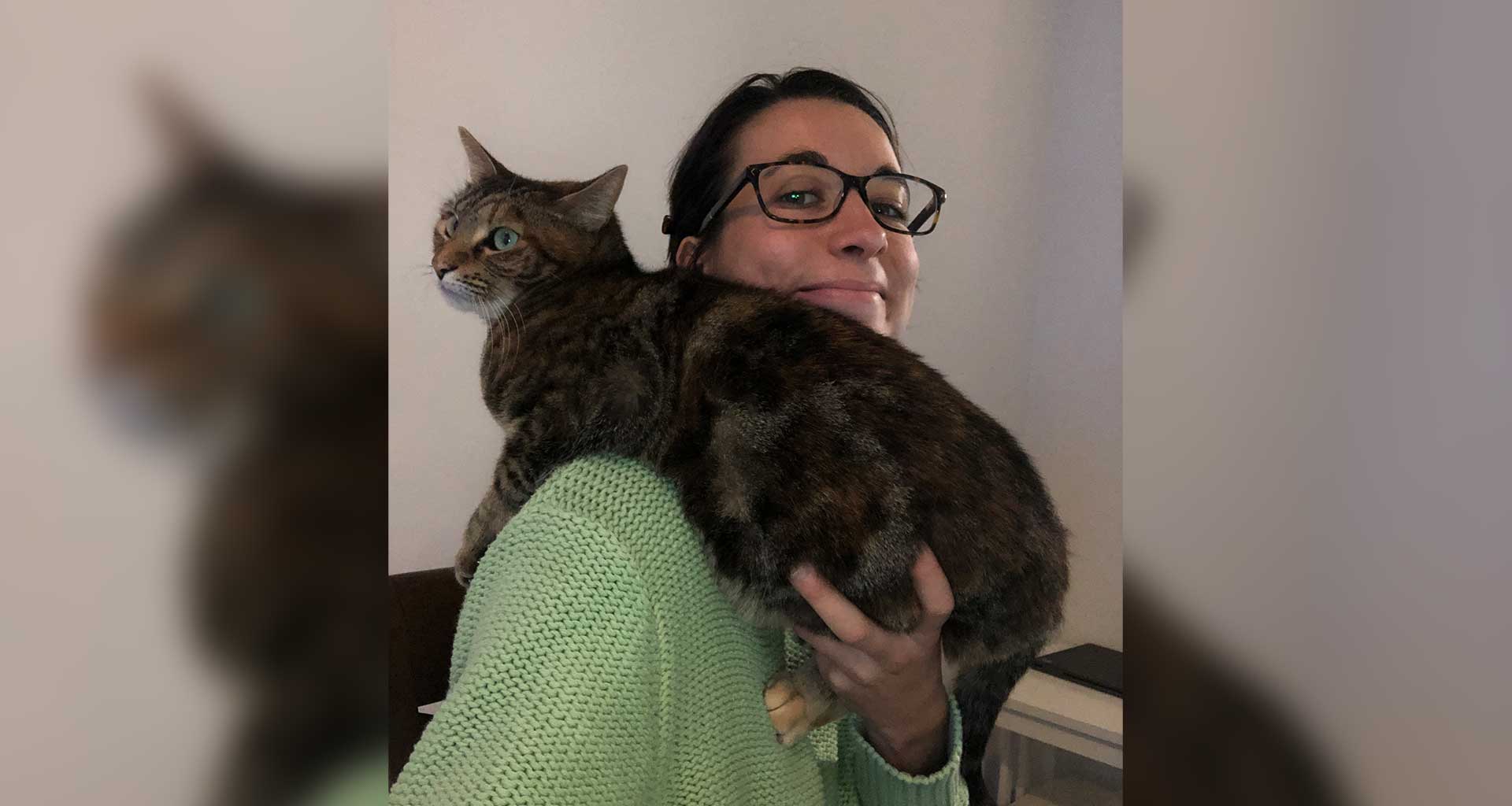Little Spodge first presented to the clinic in May having recently been adopted from a local rehoming center. Having had a bit of a rough start in life, since her adoption she had been on and off her food with intermittent fevers and diarrhoea. She was very small for her age and much smaller in comparison to her brother, another kitten from the same litter, who had been adopted out with her.
One of our lovely locum vets, Dr Britt, recommended blood and faecal testing to try and help figure out what was going on. The bloods revealed an increase in her white blood cell count, indicative of inflammation or infection, and changes in her protein levels. The faecal test came back positive for feline coronavirus. A couple of our permanent vets put their heads together and given Spodge’s history and lab results, were suspicious for a disease called FIP (Feline Infectious Peritonitis).
FIP is caused by a coronavirus which is prevalent in the feline population. In most cats the virus only causes mild diarrhoea or sometimes no signs at all, but in a small proportion of cats, the virus undergoes a mutation leading to a much more severe illness affecting the immune system and organs including the liver, kidneys, intestine and brain. Just detecting coronavirus in a cat’s stools does not mean that they have FIP, as many cats may just have been infected without mutation occurring.
FIP is notoriously difficult to diagnose and until very recently was almost always fatal with no cure available. Several tests including ultrasound scans and fluid sampling can help identify abnormalities. Our vets use the history, clinical finding and diagnostic tests to piece together evidence that support a diagnosis of FIP. If there is sufficient reason to believe the cat has FIP, it is reasonable to start a treatment trial with specific anti-virals.
Although they had only had her a very short time, Spodge’s owners were extremely committed to her care and elected to trial treatment, having the medication compounded and shipped from interstate the same day to start as soon as possible. The medication we selected is called GS-441524 and comes in the form of tablets or a suspension (liquid) that can be given at home for 12 weeks. The treatment course is expensive but has been shown to have really good results with around 85% of cats responding to treatment. The Australian Pesticides and Veterinary Medicines Authority (APVMA) has recently become aware of illegal supply of unregistered GS-441524. There is no way to validate how effective these treatments are and these compounds can be inconsistent in their formulation. Clients and veterinarians involved in the unlawful importation of unregistered veterinary chemicals may be subject to significant financial as well as civil or criminal penalties.
Spodge responded well to treatment with an improvement in her demeanor noted within a few days. Within 2-3 weeks, she was gaining weight and was in much better overall health. At the end of her treatment course, Spodge was up to 3.5kg, had a lovely full coat and had been busy play-fighting with her brother at home. She was a little devil for her blood test, but the vets were pleased to see that all her results were normal and no further treatment was required.
If you are interested, you can read more about the presentation, diagnosis and treatment of FIP here: https://icatcare.org/app/uploads/2024/02/FIP-pet-owner-brochure-FINAL-V1-Feb-2024-A5-161.pdf


